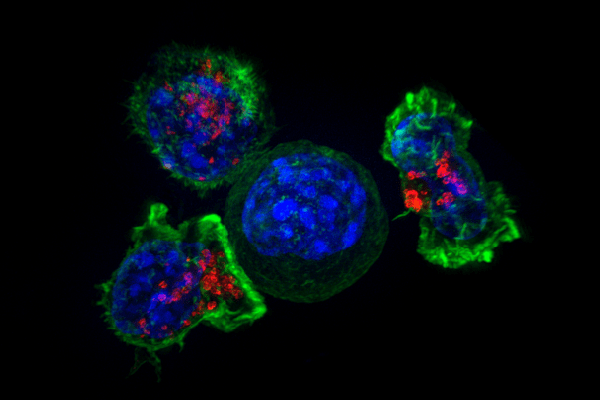By Charlotte Webster-
A new type of drug that helps target chemotherapy directly to cancer cells has been found to significantly increase survival of patients with the most common form of bladder cancer, according to results from a phase III clinical trial led in the UK by Queen Mary University of London and Barts Health NHS Trust.
The results are published in the New England Journal of Medicine and were presented at the 2021 American Society of Clinical Oncology’s Genitourinary Cancers Symposium.
The news comes on the same day new drug that works against pancreatic cancer was announced.
Urothelial cancer is the most common type of bladder cancer (90 percent of cases) and can also be found in the renal pelvis (where urine collects inside the kidney), ureter (tube that connects the kidneys to the bladder) and urethra. Globally, approximately 549,000 new cases of bladder cancer and 200,000 deaths are reported annually.
Chemotherapy is one of the most commonly used treatments for this type of cancer.
It works by targeting all the cells in the body, successfully acting upon cancer cells, but also affecting non-cancer cells, causing side effects.
A new class of drugs known as ‘antibody-drug conjugates’ (ADC) works by having an antibody attached to a chemotherapy-like drug. The antibody specifically targets and attaches to the cancer cells, bringing with it the chemotherapy-like drug, allowing it to only act upon those cancer cells and ignore normal cells in the body.
The trial involved 608 patients in 19 countries and tested a new ADC drug enfortumab vedotin, developed by Astellas Pharma Inc. and Seagen Inc., in adult patients with locally advanced or metastatic urothelial cancer who were previously treated with platinum-based chemotherapy and an immunotherapy drug called a PD-1/L1 inhibitor.
The study found the risk of death was 30 per cent lower with the new drug than with chemotherapy, with a median survival of approximately 13 months for the new drug.
Median progression-free survival, which is the time without progression of cancer, was 5.6 months for the new drug vs. 3.7 months for chemotherapy
Overall response rate, the percentage of patients with either complete or partial response, was 40.6 percent vs. 17.9 percent of patients in the chemotherapy arm.
Lead UK researcher, Tom Powles, Professor of Genitourinary Oncology at Queen Mary University of London, and Director of Barts Cancer Centre, Barts Health NHS Trust, said: “This new type of drug has led to a survival advantage in bladder cancer which has been difficult to achieve in this difficult disease. It reduced the death rate by 30 per cent and beat chemotherapy in every setting, so this really is a big deal.”
The drug is already available in the US after the Food and Drug Administration sped up its approval, and is currently awaiting regulatory approval in the UK.




